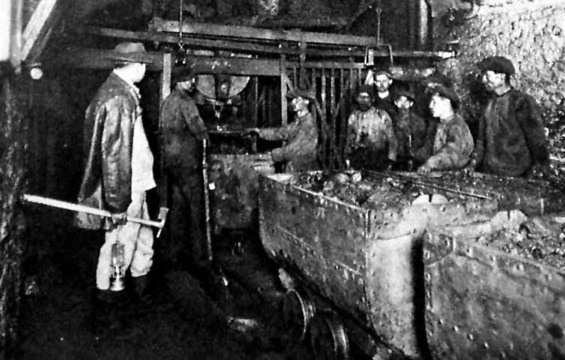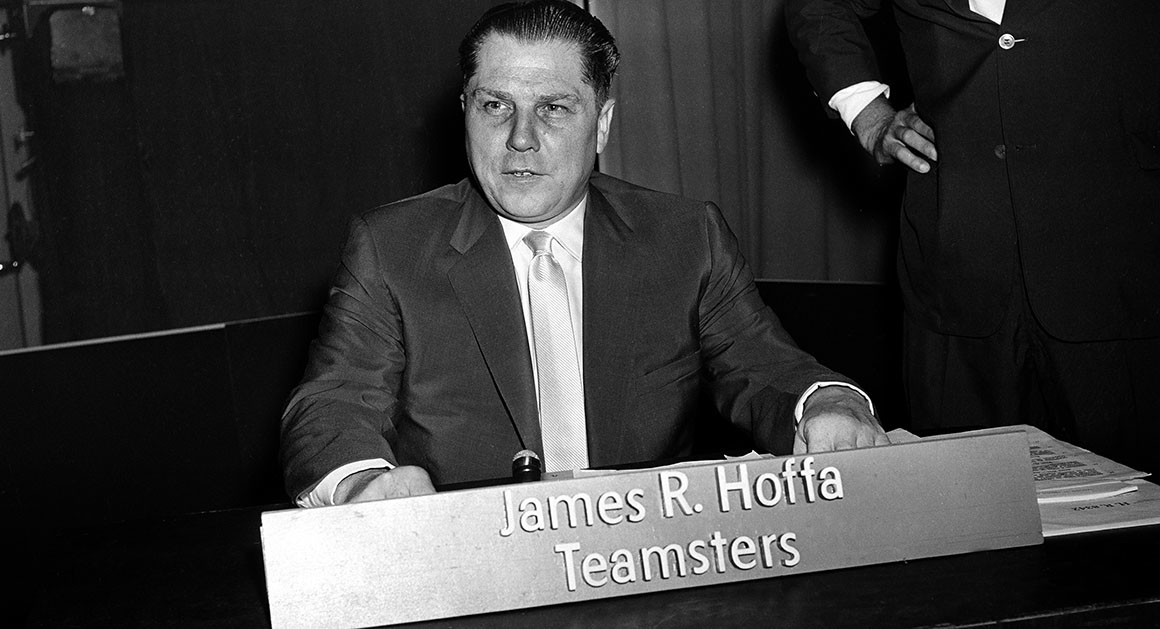
This Day in Labor History: December 23, 1872. Coal miners near Clearfield, Pennsylvania got into a fight with strikebreakers trying to mine coal during a strike. This tells us a lot about how miners defined their jobs and their rights in 1872, providing lessons to us today! 

In November 1872, the miners of central Pennsylvania went on strike. The mine owners did nothing. They just waited them out.
Railroads found alternative coal sources. In this still early period of American industrialization, companies attacking their own workers violated a lot of customary relationships that defined early American work. But times were changing fast.
Historians know almost nothing about this union, even its name. It has almost no written records. What we do know is that in the fall of 1872, a group of them working for different railroad coal mine operations agreed to strike. We don’t even know why.
This was not a unanimous decision. But community pressure moved recalcitrant miners to respect the strike and stay out. This was a proto-union really. Moreover, the railroads were proto-corporations.
The Gilded Age had barely begun and railroad executives did not yet see themselves as a national interest. The ideology of the Gilded Age had not quite developed. To them, this was a strictly local matter and they didn’t worry too much about it.
Eventually, the mine owners and the workers would come to an agreement.
A few years later, now imbued with a Social Darwinist ideology, they would see any worker resistance or combination as a violation of a law of evolution and seek government aid in having it destroyed. But that was not yet the case in 1872.
All of this went on without much that was remarkable until late December. A regional manager for one of the coal companies named David Shorthill decided to test the union and bring in strikebreakers, mostly his relatives.
This infuriated the miners and a gun battle resulted. It was something of a running battle, with people harassing the strikebreakers along the rail route.
The miners themselves denied all knowledge. They pointed to their right to a peaceful strike and noted how the complete peace of the previous five weeks. That was true, but of course somewhat disingenuous.
In fact, it was a miner’s wife named Sarah McGowan who led the resistance. To her, Shorthill was breaking the law by opening the mine during a peaceful strike.
There was a commonly understood relationship between workers and jobs and to bring in strikebreakers destroyed that mutual trust that underlay mid-19th century labor relations. Striking did not end employment. It was simply a hiatus.
As the strikebreakers began clearing the weeks of snow and ice from the railroad, both men and women began throwing ice and snowballs at them. Shorthill tried not to respond.
For him, fighting between strikebreakers and strikers got in the way of his goal of ending the idea of a property right to a job. That was December 22. The next day, things got worse. The strikebreakers went into the mine and loaded coal onto the carts to move it to the trains.
It was widely believed that this coal, already mined but not loaded, actually belonged to the workers, not to do with as they pleased, but because they had mined it, only they could take it the next step.
None of this had legal backing really, but these were community standards. And this was other men’s labor these strikebreakers were now stealing from.
These were now “blackleg” miners, the greatest insult miners could give one another.
Stealing from another man’s labor, that put you outside the community. Remember, coal mining was a tremendously dangerous job. These men put their lives at risk every day to pick out this coal.
It was as much art as work, with great pride taken in keeping up the mines and staying alive. And now these men, these blacklegs, stole the fruits of their labor!
Just after noon on December 23, the miners’ wives decided to collect their husbands’ pay from the companies and therefore sever all relationships to it. This was a real threat. Experienced coal miners were hard to come by in central Pennsylvania.
The strikers had some real power in this situation. The short-term use of blacklegs would come back to haunt the company long-term. Sarah McGowan led the way here as well, screaming at the mine operator until he agreed to way the back wages not paid before the strike.
This was not seen as that unusual, as women tended to run the finances in these coal families. Again, they had no legal right to do so in an age with misogynist laws, but another of the customary rights of this culture was women running a family’s finances.
But the operator only agreed on a few conditions. First, her husband and the other miners had to give up the right to job, including the mined coal. Second, they had to leave company housing (which was not an issue for this family who had their own home).
Third, they had to come and gather all their tools, a final break from the mine. This was fine with the operator because it fulfilled his wishes to end this customary law.
But he also didn’t actually have the money to pay the wages and he told her she would have to wait until after Christmas.
At this point, McGowan erupted in fury. She called Shorthill an “old grey-headed son of a bitch” and another miner’s wife said they would not “sit down with God damn blackleg whores.”
Another snowball and ice battle then started between the miners’ wives, some older and possibly retired miners, and the strikebreakers. Unfortunately, things took a turn for the worse. As the train backed up to load the coal, chaos ensued.
A miner, likely drunk, named Michael Mack climbed onto the train and pulled Shorthill off. Rolling around in the snow, Shorthill grabbed his gun and shot Mack in the gut. Shorthill’s nephew then started opening fire, hitting two people before getting shot himself.
No one seems to have died. Twenty-seven people were charged with conspiracy. Mack served three months. Sarah McGowan was fined $25.
In the aftermath, nothing actually happened. No one else tried to bust the strike. Everyone continued the customary laws of the country.
But then the Panic of 1873 set in and the railroads reduced their coal consumption and lowered pay rates everywhere. The cause of the miners was subsumed in a larger national story of worker suffering in the Gilded Age.
There’s no heroic story here. This isn’t a critical story in American labor history. But it does shine a light on what work meant at a different time and how workers stood up for what they saw as their rights.
The idea of a job as property right is completely lost today. And honestly, there’s no good reason why it should be lost. Why aren’t our jobs our property rights? Why don’t we at least articulate this idea?
It’s not the last time this came up. During the Flint Sit-Down Strike in 1937, UAW lawyers made the case that because jobs were the workers’ property, they were not trespassing by sitting in.
General Motors and the courts rejected this, but nonetheless, it’s a legitimate argument. Yet today, we have ceded so much rhetorical ground to employers that previous stories of how Americans defined their jobs and their rights are unknown to us. Maybe we need to change that.
I borrowed heavily from Andrew Arnold’s 2014 book, Fueling the Gilded Age: Railroads, Miners, and Disorder in the Late Nineteenth Century, to write this thread.
Back tomorrow to discuss the rise of free agency in baseball thanks to labor hero Curt Flood.
• • •
Missing some Tweet in this thread? You can try to
force a refresh






